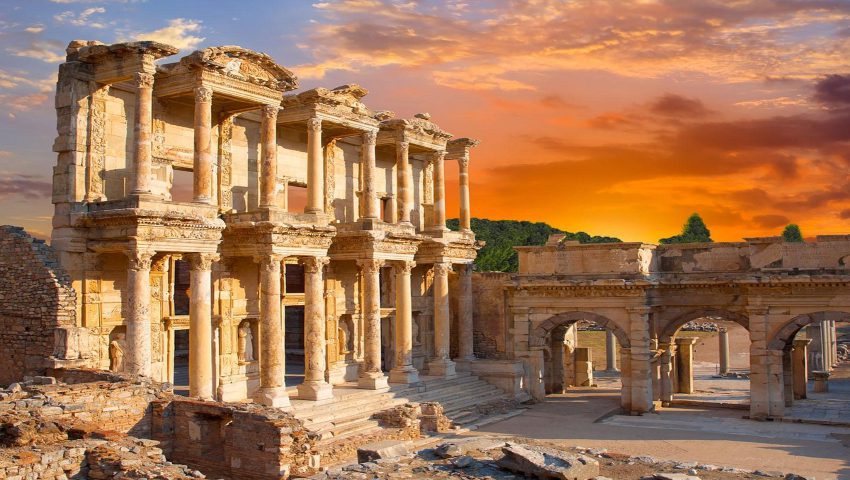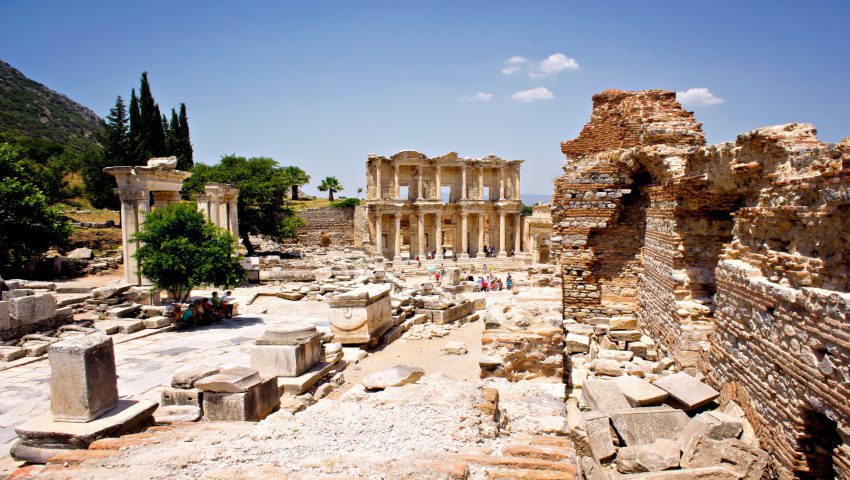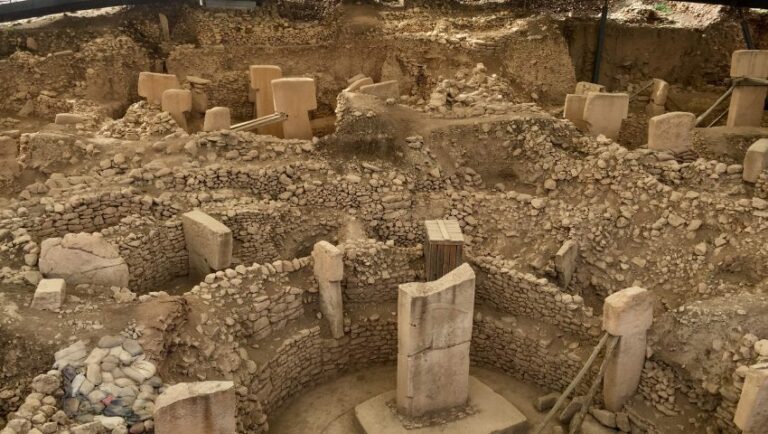Ephesus: The Ultimate 2026 Guide Night Museums, Euro Tickets & Train Hacks
Table of Contents
Ready to touch history? Ephesus isn’t just a pile of “old stones”—it is a time machine into one of the most powerful metropolises of antiquity. This is where Cleopatra and Mark Antony walked the streets, and where the Apostle Paul preached in a theater so massive it still serves as a concert venue today.
But a word of warning: The rules of engagement have changed drastically. From a shift to Euro based pricing to the introduction of spectacular night visits, relying on a guidebook from 2023 will cost you time and money. In this guide, we break down how to dodge the tourist traps and experience Ephesus like an insider.

Why Ephesus is More Than Just Ruins
Located on the Aegean coast of modern day Turkey, Ephesus was the New York City of the ancient world. As the capital of the Roman province of Asia, it boasted a population of 250,000 at its peak. It was a pulsating trade hub, a religious center for the Cult of Artemis (one of the Seven Wonders of the Ancient World), and later a pivotal site for early Christianity.
Today, it is a UNESCO World Heritage site, but what sets it apart is its preservation. Walking down Curetes Street, you aren’t just looking at foundations; you are looking at two story facades, intricate mosaic floors, and yes, public toilets that are a surprising highlight for many visitors.
The “Night Museum”: The 2026 Game Changer
Here is the single most valuable tip you won’t find in older blogs: Visit Ephesus at night.
Starting in 2024, the Turkish Ministry of Culture introduced the concept of “Night Museology.” During the high season (typically June through October), the ancient site remains open often until midnight. The benefits are impossible to ignore:
- Escape the Inferno: Avoid the scorching midday sun (often exceeding 35°C / 95°F), which turns the white marble city into a reflective oven.
- Cinematic Atmosphere: The Library of Celsus and the Great Theater are illuminated with professional lighting, creating a hauntingly beautiful vibe you can’t get at 10 AM.
- Silence the Crowds: By evening, the massive cruise ship groups have largely returned to port, leaving the streets much quieter.
Tickets & Euro Pricing: The New Reality
To combat inflation, Turkey has overhauled its museum pricing structure. For foreign visitors, prices are now pegged to the Euro. Here is what you need to budget for in 2026:
- Ephesus Ancient City: €40
- Terrace Houses (Hanghäuser): €15 (Curator’s Note: Do not skip this. The preserved frescoes and domestic luxury of the Roman elite are worth every cent of the extra cost).
- House of the Virgin Mary: Approx. 500 TRY (Roughly €13–€14 depending on the exchange rate). Note that this is managed separately by the municipality.
- St. John’s Basilica: €6
Is the Museum Pass Türkiye Worth It?
The “Museum Pass Türkiye” currently costs €165 and is valid for 15 days. If you are only visiting Ephesus, do the math — it’s not worth it. However, if your itinerary includes a road trip to other heavy hitters, it becomes a smart investment to skip ticket lines.
Insider Tip: If you are planning a wider trip, for example driving down to the coast, check out our guide on Car Insurance in Turkey to avoid common rental traps. The traffic can be as intense as the history.

Getting There: The “Train Hack” from Izmir
Many tourists get fleeced by expensive taxis or trapped in slow shuttle buses from the Izmir bus terminal (Otogar). Do what the locals do: take the train. It’s cheap, reliable, and comfortable.
The Best Route (IZBAN / TCDD)
From Basmane Station in downtown Izmir, Turkish State Railways (TCDD) runs regular trains to Selçuk (the modern town bordering Ephesus). The journey takes about 80-90 minutes and costs peanutsusually under €3–€4.
Alternatively, if you are coming from Izmir Airport (ADB), you can take the IZBAN commuter line south to the end station, Tepeköy, and transfer there to the train for Selçuk. Make sure you have a working connection to check schedulesour Vodafone Turkey Survival Guide explains how to stay connected without paying roaming fees.
Once you arrive in Selçuk, it’s a quick hop via a local minibus (Dolmuş) to the ancient city gates.
Curator’s Choice: What You Actually Need to See
The site is massive. If you are short on time or energy, ruthlessly prioritize these three highlights:
- The Library of Celsus: The ultimate photo op. Built as a monumental tomb for Senator Celsus, it once held 12,000 scrolls.
- The Terrace Houses: This is where the 1% lived. Featuring running water, underfloor heating, and exquisite wall art, these covered excavations show the true luxury of Roman life.
- The Great Theater: With a capacity of 25,000, the scale is mind bending. Climb to the top row and test the acousticsthey still work perfectly today.
Practical Survival Tips for 2026
Timing is Everything: The sweet spots are April/May and October/November. You get warm weather without the heatstroke. If you must visit in July or August, the Night Museum ticket is non negotiable.
Gear Up: The ground is uneven, polished marble that gets incredibly slippery. Leave the flip flops at the hotel and wear sturdy shoes. A hat is mandatory during the day.
The Exit Gauntlet: As you leave the site, you will walk through a gauntlet of souvenir stalls. It can be overwhelming. Before you buy, read our guide on How to Bargain in the Grand Bazaar—the same psychological tactics apply here to ensure you don’t overpay for that statue of Artemis.
The Verdict
Ephesus remains a mandatory pilgrimage for anyone visiting Turkey. By tweaking your strategytaking the train from Izmir and aiming for a sunset or evening visityou transform a stressful tourist slog into a magical encounter with history.







